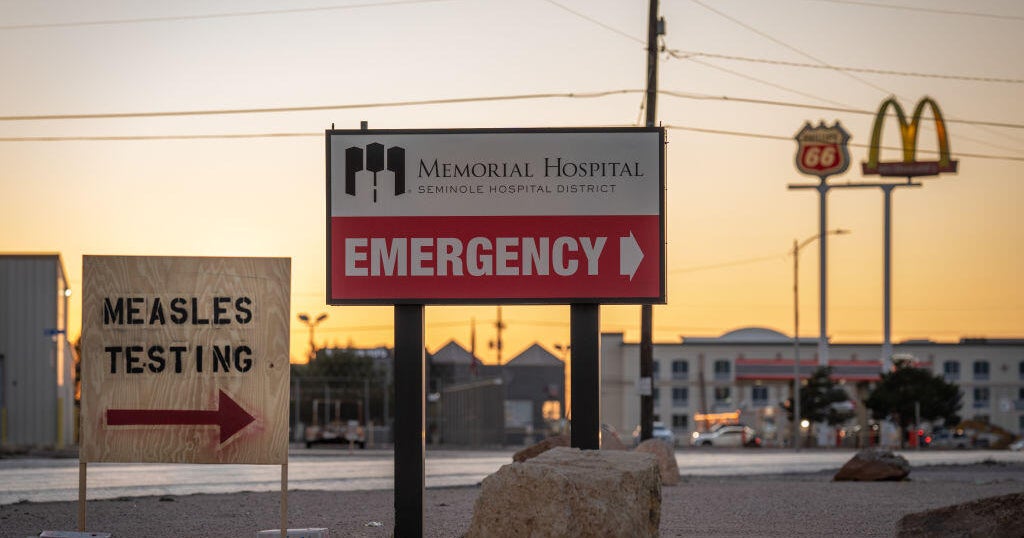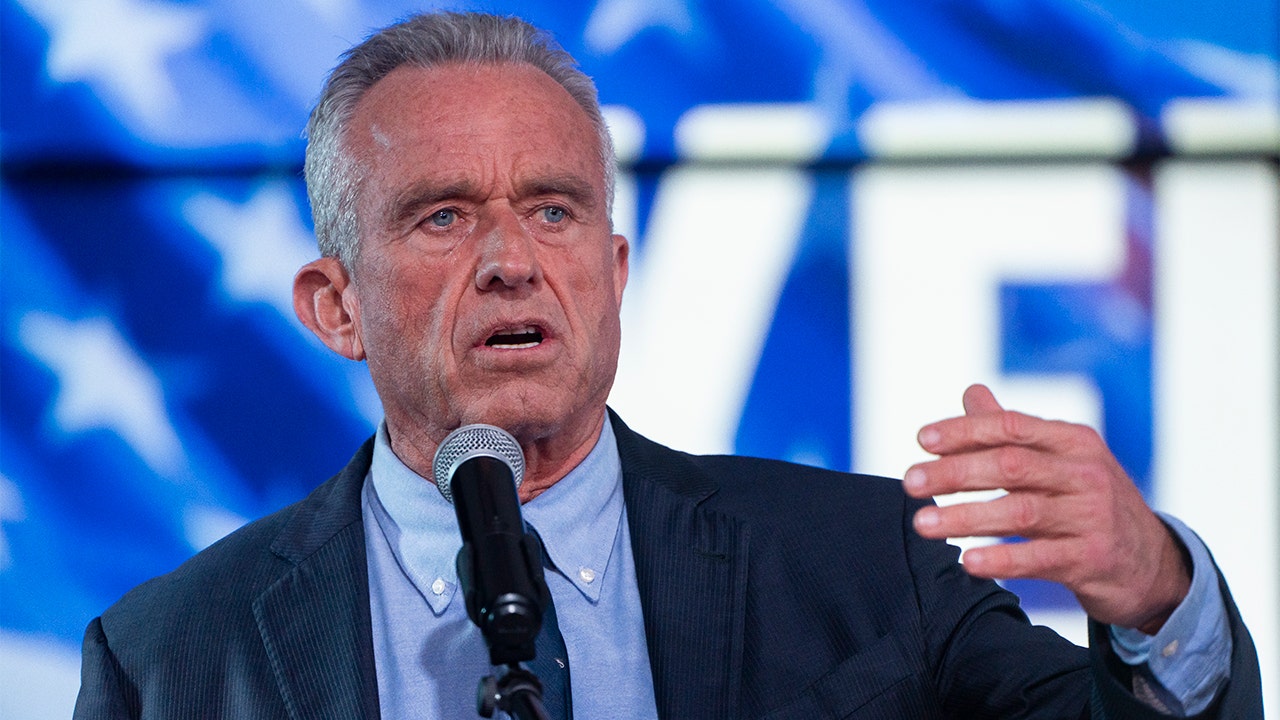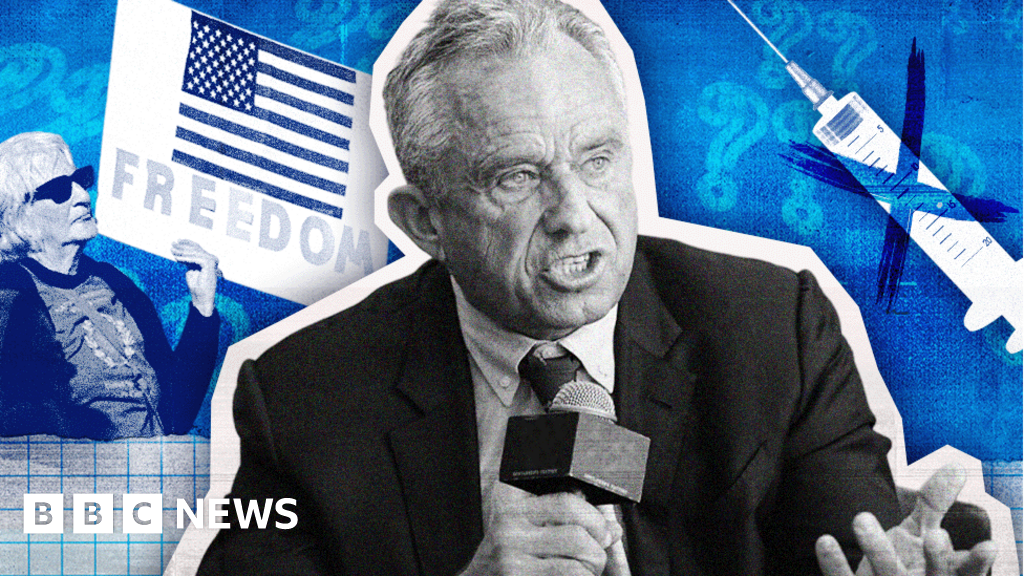Trump Administration's Call for Justification of Covid Medications by Drugmakers Could Change Future of Vaccine Development
#trump_administration #covid_medications #vaccine_development

Introduction
In the midst of the Covid-19 pandemic, the race to develop a vaccine has been a top priority for many pharmaceutical companies. However, with the recent decision by the FDA to limit vaccine approval, the Trump administration is now calling for drugmakers to justify the success of their Covid medications. This move could have significant implications for the future of vaccine development and distribution.
Key Details
Health and Human Services Secretary Robert F. Kennedy Jr. has been a vocal advocate for overhauling federal health agencies and changing U.S. immunization policies. He believes that the current system is flawed and potentially harmful to the public. In addition to the recent limitations on vaccine approval, Kennedy has also proposed changes to the way vaccines are tested and approved in the future. These changes would involve more rigorous testing and a greater focus on safety and efficacy.
Impact
The Trump administration's call for drugmakers to justify the success of their Covid medications could lead to a more thorough and transparent process for vaccine approval. This could ultimately benefit the public by ensuring the safety and effectiveness of future vaccines. However, it may also slow down the development and distribution of a potential Covid-19 vaccine, which could have negative effects on the ongoing pandemic. It remains to be seen how drugmakers will respond to this new demand for justification and how it will impact the future of vaccine development.
About the People Mentioned
Robert F. Kennedy Jr.
Robert F. Kennedy Jr. is an American politician, environmental lawyer, and author, born on January 17, 1954, in Washington, D.C. He is the third of eleven children of Robert F. Kennedy, the U.S. Attorney General, and Ethel Skakel Kennedy. His family's political legacy includes his uncle, President John F. Kennedy. Kennedy's early life was marked by personal struggles, including drug addiction, which led to his arrest for heroin possession in 1983. However, he later redirected his life towards environmental advocacy and public service. Kennedy graduated from Harvard University in 1976 with a degree in American history and literature and later earned a law degree from the University of Virginia in 1981. He began his career as an assistant district attorney in Manhattan but soon shifted his focus to environmental law. In 1987, he received a master's degree in environmental law from Pace University, where he taught environmental law from 1986 to 2018 and co-founded the Environmental Litigation Clinic. Notably, Kennedy is the founder of the Waterkeeper Alliance, a global clean water advocacy group, and Children's Health Defense, which focuses on childhood chronic diseases and environmental exposures. He has been recognized for his environmental activism, including being named TIME Magazine's "Hero for the Planet" for his efforts in restoring the Hudson River. Kennedy has also been involved in high-profile legal cases against companies like DuPont and Monsanto. In recent years, he has been a vocal figure in vaccine skepticism and public health controversies. In the 2024 U.S. presidential election, Kennedy initially ran as an independent candidate before endorsing Donald Trump. Currently, his involvement in public life includes controversial stances on health and environmental issues. Despite these controversies, his work in environmental law and advocacy has had significant impacts on public health and environmental protection.
About the Organizations Mentioned
FDA
## Overview The **U.S. Food and Drug Administration (FDA)** is a federal agency within the Department of Health and Human Services responsible for protecting public health by ensuring the safety, efficacy, and security of a wide range of products, including human and veterinary drugs, biologics, medical devices, food, cosmetics, and products that emit radiation[1][2][3]. Its mission is to advance public health by helping to speed innovations that make medical products safer, more effective, and more affordable, while providing the public with accurate, science-based information about these products[1]. ## Functions and Regulatory Scope The FDA’s regulatory authority is expansive. It oversees the approval, manufacturing, marketing, and distribution of prescription and over-the-counter drugs, vaccines, blood products, medical devices (from simple tongue depressors to complex pacemakers), dietary supplements, most foods (except some meat, poultry, and egg products regulated by the USDA), cosmetics, and tobacco products[1][2][5]. The agency also regulates electronic products that emit radiation, such as X-ray machines and microwave ovens[2][5]. Importantly, the FDA does not regulate the practice of medicine, medical services, product pricing, or health insurance reimbursement[2]. The FDA achieves its goals through a combination of **premarket reviews**, **post-market surveillance**, **facility inspections**, **enforcement actions**, and **public education**[3][4]. It maintains several adverse event reporting systems—such as MedWatch and VAERS—to monitor product safety after they reach the market[4]. The agency also plays a key role in the nation’s counterterrorism efforts by ensuring food supply security and fostering the development of medical countermeasures[1]. ## History and Key Achievements Established in 1906 with the passage of the Pure Food and Drugs Act, the FDA’s origins trace back to efforts to combat adulterated and misbranded food and drugs. Its regulatory powers expanded significantly with the
Health and Human Services
The U.S. Department of Health and Human Services (HHS) is a pivotal federal agency dedicated to enhancing the health and well-being of Americans. Established in 1953, HHS has evolved significantly over the years, playing a crucial role in public health, medical research, and human services. **Mission and Responsibilities:** HHS administers a wide range of programs, including health insurance coverage for over 170 million Americans through Medicare, Medicaid, and the Affordable Care Act. It also supports community health centers, provides medical care to American Indians and Alaska Natives, and addresses specific health needs such as HIV/AIDS and mental health[5]. The department is involved in life-saving research and works closely with other federal departments, state governments, and the private sector to achieve its goals[4]. **History and Achievements:** Historically, HHS has been instrumental in addressing major public health challenges, such as disease outbreaks and substance abuse. It has also been at the forefront of medical research, particularly through the National Institutes of Health (NIH). **Current Status:** In 2025, HHS embarked on a significant reorganization aimed at enhancing efficiency and reducing redundancies. This involves merging several agencies into new entities, such as the Administration for a Healthy America, and consolidating divisions from 28 to 15[2][3]. The restructuring also includes workforce reductions, with a reported decrease of 10,000 employees[6]. **Notable Aspects:** HHS's FY2025 budget request is $1.802 trillion, with a focus on critical programs like Medicare and Medicaid[10]. The department is also working to protect taxpayer dollars through oversight and enforcement efforts[7]. Its reorganization is expected to save taxpayers $1.8 billion annually[8]. Overall, HHS remains a vital component of the U.S. healthcare system, driving innovation and access to healthcare services.
U.S. immunization policies
The U.S. immunization policies are a comprehensive framework orchestrated primarily by federal agencies like the Centers for Disease Control and Prevention (CDC), the Food and Drug Administration (FDA), and the National Institutes of Health (NIH), aimed at ensuring broad vaccine coverage and public health protection across all age groups. The system evolved to provide free vaccines to children, especially those uninsured or from Native communities, via programs like Vaccines for Children (VFC), and has expanded to include adult immunizations under the Affordable Care Act (ACA)[1][2][3]. Historically, the U.S. immunization program has roots in coordinated public-private partnerships designed to develop, regulate, and distribute vaccines efficiently. The CDC oversees immunization schedules, disease surveillance, and vaccine safety monitoring through systems such as VAERS and Vaccine Safety DataLink, while the FDA rigorously evaluates vaccine safety and efficacy before licensing[1][2][4]. The Advisory Committee on Immunization Practices (ACIP) plays a central role by developing evidence-based vaccination recommendations through transparent public meetings, balancing benefits, risks, and disease prevalence, and updating schedules annually for children and adults[2][4]. Key achievements include establishing near-universal childhood vaccine access, integrating adult immunization plans, and maintaining a national vaccine stockpile to respond to outbreaks[1][3]. The Vaccine National Strategic Plan (2021–2025) reflects a modernized, lifespan approach, merging childhood and adult immunization strategies with measurable goals to tackle vaccine hesitancy and disparities[3]. Currently, U.S. immunization policy adapts to emerging technologies and public health challenges by promoting best practices for vaccine administration, storage, and communication to healthcare providers, supporting equitable access, and leveraging data-driven surveillance for safety and effectiveness[5][6]. Notable aspects include the rigorous, multi-agency coordination, the public transparency of policy development, and integration of technology for vaccine safety monitoring and coverage tracking. Overall, U.S. immunization policies represent a dynamic












